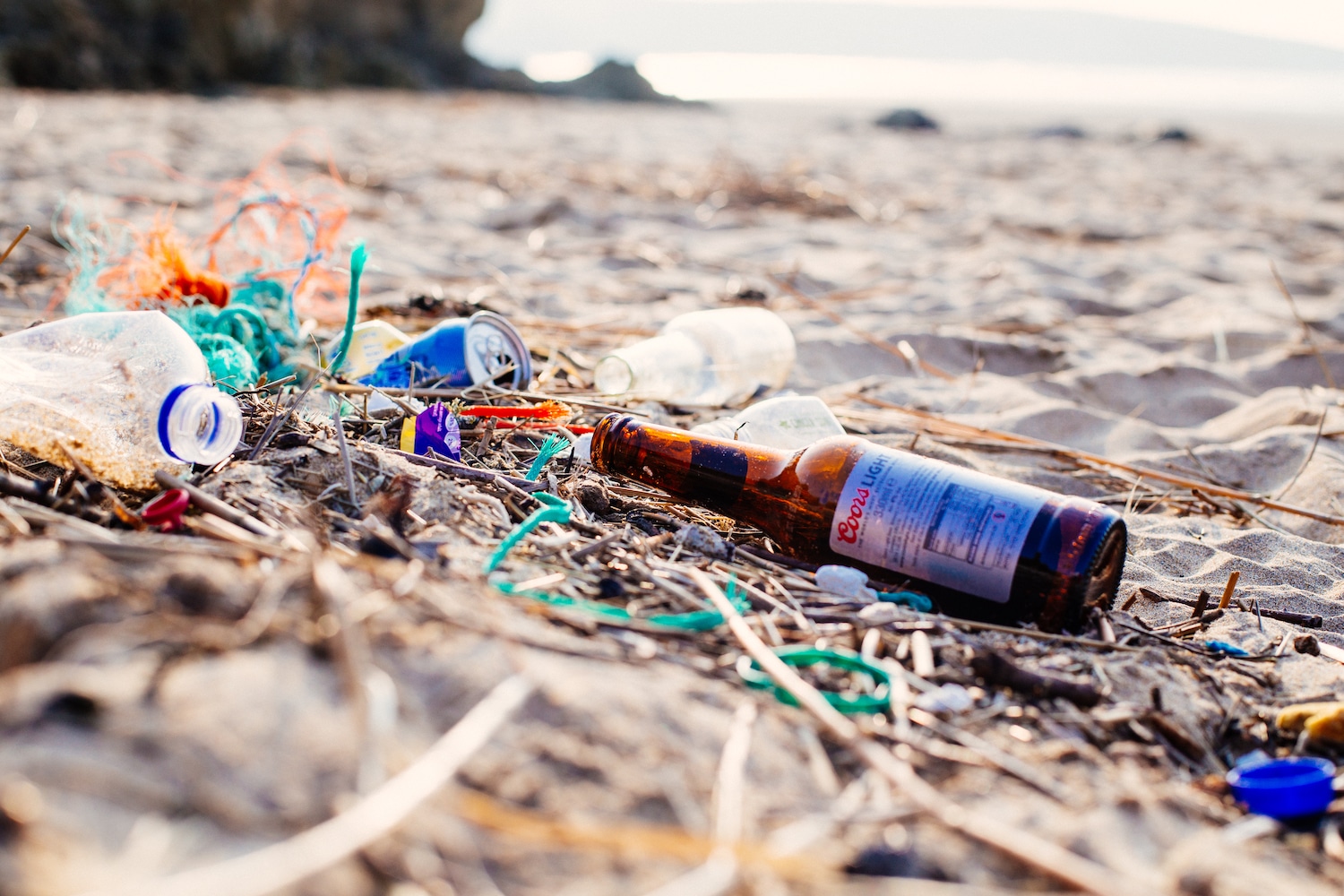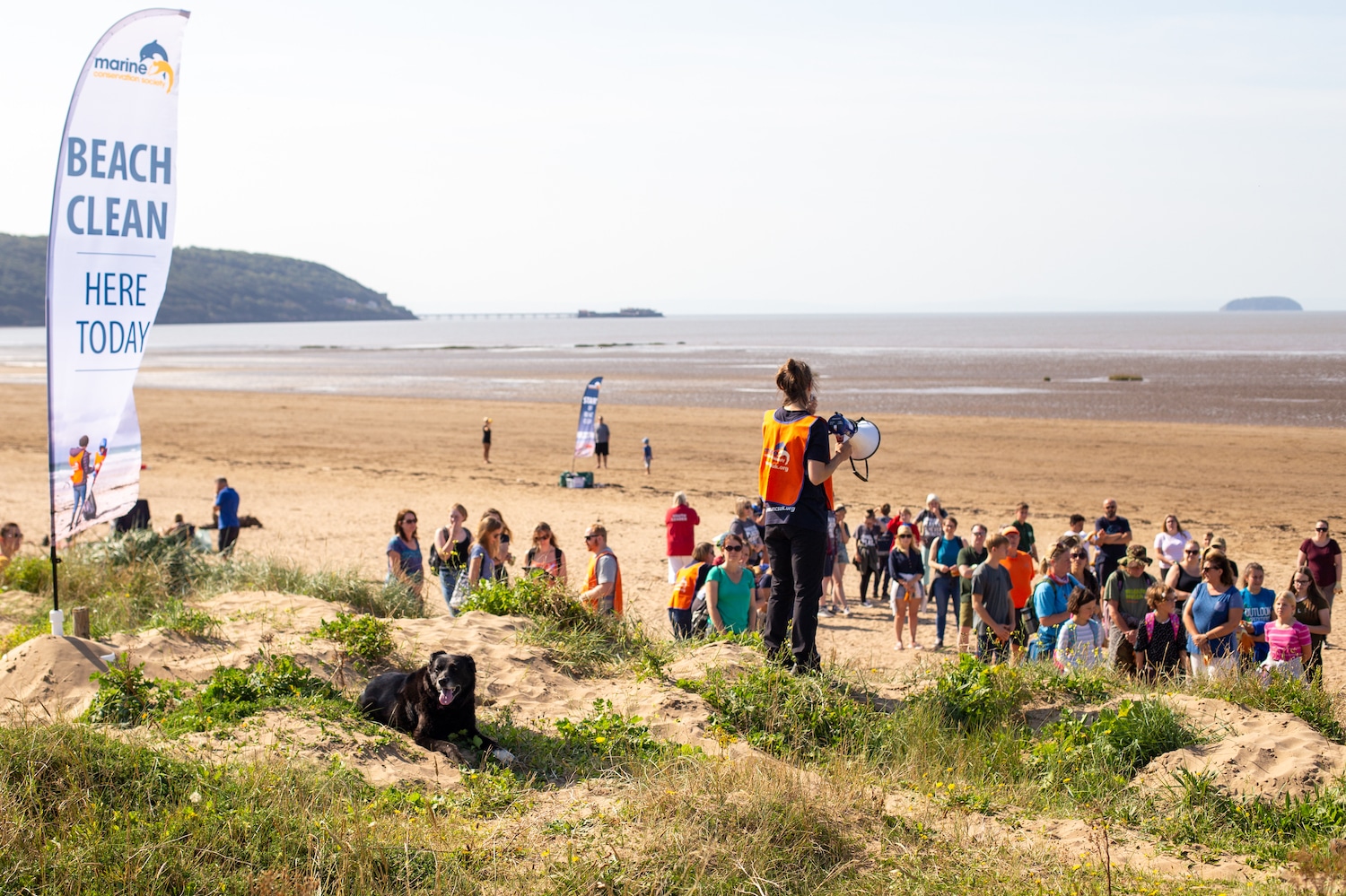News
MCS Beach Clean data reveals urgent need for all-inclusive UK Deposit Return Scheme

The UK’s leading marine charity, the Marine Conservation Society (MCS) has released the results of its most recent Great British Beach Clean, a UK-wide weekend of coastal cleaning from Land’s End to the Shetland Islands and from Northern Ireland to the Channel Islands.
This year the Great British Beach Clean saw 437 beach cleans and litter surveys take place with over 10,800 volunteers getting involved to remove 10,833 kg of litter from the UK’s beaches…. That’s almost 11 tonnes of litter in one weekend alone. Over the past 26 years MCS has invited volunteers to become citizen scientists and not only clear the beach of litter, but record what they collect, providing valuable data to the charity on what’s polluting the UK’s beaches.
The five most common items per 100m of UK beach:
- Plastic/polystyrene pieces (0-50cm) – 143 per 100m
- Cigarette stubs – 42.6 per 100m
- Glass items (other) – 33.4 per 100m
- Plastic/polystyrene string – 32.6 per 100m
- Packaging (crisps, sweets, lollies and sandwiches) – 30.9 per 100m

Photo: Natasha Ewins
Data from this year’s Great British Beach Clean illustrates the urgent need for the UK’s Governments to implement an all-inclusive Deposit Return Scheme (DRS) which would not only minimise single-use plastic bottles littering the beaches, but would remove all types of drinks containers from the UK coastline including glass and cans. Over just one weekend of beach cleaning, MCS volunteers recorded over 16,000 drinks containers of varying forms and an average of four glass bottles for every 100m of beach surveyed. Whilst the potential dangers of single-use plastic bottles have been well documented, glass bottles and cans are equally as dangerous for not only marine life, but for beach visitors.
Laura Foster, Head of Clean Seas said:
“It’s so important to ensure that we’re not taking our foot off the pedal to push the UK’s Governments to adopt all-inclusive DRS at the earliest possible opportunity. The Scottish Government’s commitment to an all-inclusive DRS is a fantastic step in the right direction, but it must be designed to include all drinks containers and must not exclude glass. Delaying the implementation of DRS by a year would result in 50 million additional empty containers littering our beaches, it’s imperative that the planned 2021 implementation date is adhered to.”
“The consultation on a Deposit Return Scheme for England, Wales and Northern Ireland earlier this year received an overwhelmingly positive response from the public, with over 207,000 responses in favour of an all-inclusive DRS. Disappointingly, the development of DRS for England and Wales has stalled, with the current Government indicating it would need to gather further evidence and to consult further before introducing DRS, the general election has added further delay. Around the world, 40 countries have DRS in place, significantly reducing litter levels and increasing recycling rates. In the meantime, a climate emergency has been declared and our data illustrates that drinks containers continue to pollute our marine environment whilst policy stalls. Other countries have rolled out DRS and we need to act now. DRS should be one of the first policies implemented following the upcoming general election to protect our environment and kick-start behaviour change.”

At this year’s Great British Beach Clean 558 litter items were found per 100m of beach surveyed in the UK, illustrating why it is so important to continue fighting to reduce pollution on our beaches and to implement measures to stop marine pollution at source. Whilst plastic pieces remain the most prolific form of litter (143 pieces found per 100m of beach), cigarette stubs (42 per 100m) and glass items (other) (33 per 100m) make up the top three most common litter items on UK beaches, illustrating the need for further policies, initiatives and bans to be put in place to reduce all forms of beach litter.
Lizzie Prior, Beachwatch Officer said:
“Great British Beach Clean data over the last 26 years has been instrumental in pushing for policies and initiatives which have made a real change to the marine environment, including the 5p carrier bag charge. We hope that this year’s data, when compared with the state of the UK’s beaches 26 years ago, will encourage even more people to get involved in our year round Beachwatch programme to help us gather important data and keep the UK’s beaches beautiful for generations to come.”
Thanks to the support of players of People’s Postcode Lottery, the Marine Conservation Society’s Beachwatch programme can conduct beach cleans year-round, gathering data which supports the charity’s campaigning to stop marine pollution at source.
For more information on the Great British Beach Clean and its 26 years of data, and to find beach cleans happening near you, please visit www.mcsuk.org/beachwatch
Gear News
Introducing the TR-80, IR-50 and CS-30 Regulators from DYNAMICNORD

Whether you are a beginner or a professional diver – with the three new main regulators from DYNAMICNORD, everyone will find their favourite regulator. They all look super stylish.
Excellent performance with the TR-80
Quality and performance are the be-all and end-all for regulators. It is not for nothing that the TR stands for Tec Reg. The innovative design of the TR-80 guarantees absolute reliability – even in ice-cold waters.

Perfect breathing effort at 0.8 J/l / certified for diving in waters below 10 degrees / structural design made of solid brass for best cold protection / membrane-compensated design with dry seal of the first stage / reduced exhalation effort thanks to optimized exhalation membrane and bubble deflector / adjustable Venturi (dive/predive) and adjustment knob for individual inhalation comfort / innovative design of the front cover prevents free-flow in strong currents or when diving with scooters / design made of sandblasted brass, matt chrome finish / 2 HP and 4 LP outlets / mouthpiece made of high-quality, anti-allergic silicone for maximum comfort.


Amazing underwater adventures with the IR-50
The IR-50 is the top regulator for advanced and experienced divers. Natural breathing is the essence of this regulator.

Ideal breathing effort at 0.8 J/l /certified for diving in waters below 10 degrees / compensated membrane / adjustable venturi (dive/predive) and adjustment knob for individual inhalation comfort/ outlet valve and deflector for minimum exhalation effort and reduction of bubbles on the face / design made of sandblasted brass, matt chrome finish / 2 HP and 4 NP outlets / mouthpiece made of high-quality, anti-allergic silicone for maximum comfort.


The Workhorse – our CS-30
For diving centres and diving beginners – the workhorse stands for strong construction, reliability and robustness. Perfect for your training.

Optimal breathing effort at 0.8 J/l /recommended for diving in waters above 10 degrees / non-compensated piston / adjustable venturi (dive/predive) / outlet valve and deflector for minimum exhalation effort and reduction of bubbles on the face / design made of sandblasted brass, matt chrome finish / 1 HP and 3 NP outlets / mouthpiece made of high-quality, anti-allergic silicone for maximum comfort.


Octopus OP-30
The OP-30 is the ideal addition to all DYNAMICNORD regulators. It is identical in construction to the CS-30.

The TR-80, IR-50, CS-30 (DIN & INT) regulators and the Octopus OP-30 are available from DYNAMICNORD dealers and in the online store.
DYNAMICNORD – Your Outdoor Companion.
Marine Life & Conservation
Paul Watson Released as Denmark Blocks Japan’s Extradition Bid

Renowned anti-whaling activist Paul Watson has been released from custody in Greenland after spending five months in detention. Denmark’s Justice Ministry rejected Japan’s request for his extradition, citing insufficient guarantees that his time already served in custody would be credited against any potential sentence.
The 74-year-old Canadian-American was arrested on July 21 in Nuuk, Greenland’s capital, when his ship docked to refuel. His arrest was based on a 2012 Japanese warrant related to a 2010 encounter in Antarctic waters. Japan alleged Watson obstructed operations and caused damage to a whaling research ship during efforts to disrupt illegal whaling. Watson has consistently denied these claims, maintaining his commitment to marine conservation.
Denmark, which oversees extradition matters for Greenland, concluded that while the legal conditions for extradition were met, the lack of assurances from Japan regarding time-served credit made extradition untenable.
In a video shared by his foundation, Watson expressed gratitude and relief, saying, “After five months, it’s good to be out… and good to know they’re not sending me to Japan.” He added that the most difficult part of his time in custody was being separated from his two young sons.
Watson is a pioneering figure in marine conservation, known for founding the Captain Paul Watson Foundation in 2022 after decades of activism with the Sea Shepherd Conservation Society. His bold efforts to defend marine life have earned him widespread support, including from celebrities and conservationists. His work has also been featured in the acclaimed reality TV series Whale Wars.
Watson’s lawyer, Jonas Christoffersen, praised the decision, stating, “We are happy and relieved that Paul Watson is now free.” He added that Watson is eager to reunite with his family and continue his vital work.
The arrest occurred while Watson’s vessel, the M/Y John Paul DeJoria, was en route to the North Pacific with a team of 26 volunteers to intercept a Japanese whaling ship. His foundation described the arrest as politically motivated and emphasized that Watson’s actions were focused on ending illegal whaling practices.
Japan resumed commercial whaling in 2019 after leaving the International Whaling Commission, asserting that whale meat is a cultural tradition. Conservationists, however, continue to challenge these practices, highlighting their impact on marine ecosystems.
Despite the challenges, Watson remains steadfast in his mission to protect marine life and bring attention to whaling practices. His dedication to ocean conservation has made him a globally respected advocate for the environment.
-

 News2 months ago
News2 months agoIconic SS United States to become the World’s Largest Artificial Reef
-

 News3 months ago
News3 months agoBook Review – 52 Assignments: Underwater Photography
-

 Gear News3 months ago
Gear News3 months agoDYNAMICNORD – New German diving brand enters the British market
-

 News3 months ago
News3 months agoExploring Cenote El Pit: A Diver’s Dream
-

 Gear News3 months ago
Gear News3 months agoTry BARE drysuits (and maybe even win one!) this Friday with Sea & Sea at North West Dive Fest
-

 Marine Life & Conservation3 months ago
Marine Life & Conservation3 months agoBook Review: Coral Triangle Cameos
-

 Blogs2 months ago
Blogs2 months agoDive the Egyptian Red Sea this Autumn with Regaldive
-

 News3 months ago
News3 months ago2024 Ocean Art Underwater Photo Competition Announced















